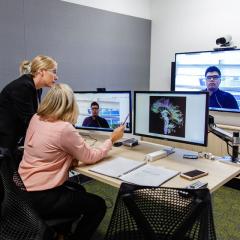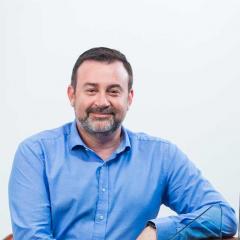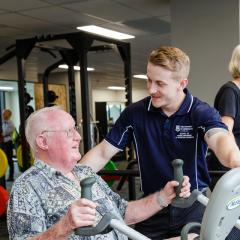Loneliness and isolation are linked to poor physical and mental health. Indeed, being lonely is a stronger predictor of premature death than physical inactivity or obesity.
Research has shown that relationships with groups, such as family, friends, community, arts-based, sporting and other interest groups, can influence a person’s health – both positively and negatively.
Although there is a wealth of evidence which shows that losing valued group memberships can have detrimental effects on a person’s health, practitioners have not had a clear set of guidelines to deal with the adverse health effects of social isolation.
Until now.
A group of researchers, led by The University of Queensland’s Professor Catherine Haslam, has drawn on their combined expertise across the fields of social, clinical, health, organisational and neuro-psychology to develop a program to help people who are vulnerable to social isolation and disconnection.
Groups 4 Health (G4H) is an evidence-based intervention that directly targets the psychological distress that results from loneliness and social isolation. It provides people with the knowledge, skills, and confidence to increase their social connectedness, and in particular, their group-based social identifications.
“G4H works on two pathways that are related to positive health outcomes following major life changes associated with such things as illness, trauma or retirement,” Professor Haslam explains.
“One of these pathways centres on how best to harness existing group memberships, while the other focuses on acquiring new positive groups to join. The aim of the program is to put people in the driver’s seat and give them agency to understand how best to engage and manage the groups in their lives in ways that support their health and wellbeing,” Professor Haslam said.
“The key point is that when life throws up challenges, a sense of social identification with others is one of the main things that helps us to tackle them. Sometimes this identification is associated with groups that we have been members of for a long time, like our family or friendship groups, but sometimes it is associated with groups that we have only just joined, for example, as a consequence of our shared experience of becoming a parent, surviving trauma, transitioning to retirement, or moving into care.
“In all of this, the more positive and compatible groups that a person is a member of, the more likely it is that they will succeed in navigating a new or difficult period of their life.”
There are 5 key elements of the G4H program that participants typically work through:
- Schooling: Raising awareness of the value of groups for health and of ways to harness this.
- Scoping: Mapping one’s social world to identify existing group connections and areas for social growth.
- Sourcing: Developing skills to maintain and utilise existing networks and reconnect with valued groups.
- Scaffolding: Using the group as a platform for new social connections and to grow confidence.
- Sustaining: Identifying strategies to ensure social group ties endure and learning how to deal with ongoing group issues.
Professor Haslam and her team, including Dr Tegan Cruwys, Dr Genevieve Dingle, Professor Alex Haslam, Professor Jolanda Jetten, and PhD candidates Sarah Bentley and Melissa Chang, first developed G4H at the St Lucia campus in Brisbane, Australia, in 2014.
As she is quick to point out:
“We practice what we preach! We are a diverse group who have developed this program together and we rely on each other for support and energy.”
The first G4H program training workshop was held in 2014 and is now being run annually in Australia with training extended internationally to the UK, Germany and Switzerland.
As a result, the program is now being implemented across the globe in a range of conditions and contexts.
“G4H was first piloted with adults experiencing social isolation and psychological distress, demonstrating a marked improvement in depression, social anxiety, and loneliness both after the program and then six months later,” Professor Haslam said.
“It has since been trialled and compared with treatment-as-usual and this has confirmed its effectiveness in reducing loneliness, social anxiety and depression. In collaboration with Rotary Mental Health and Headspace, a randomised controlled trial is now being run to find out if the program can reduce depression relapse in young people.”
Groups 4 Health can be beneficial across the lifespan.
“One of the biggest G4H adaptations has been for retirees. Groups 4 Health: Retirement, is an online program developed to help retirees engage in social planning as they transition out of work and support adjustment during what can be a period of great social upheaval,” she said.
“We’ve also developed Groups 4 Health: Going Home, working with people in Redcliffe over the age of 50 who have been socially disconnected from their contacts after longterm hospitalisation. We’re using this program as a basis to transition them back into the community, so that they can reconnect and use their social resources as best as possible.
“Groups 4 Education, led by Sarah Bentley, is helping students transition to tertiary education and tackle the challenges of instability and mental health vulnerability that starting at university can create. We’re trialling the program at UQ, the University of Melbourne, the University of Exeter, Nottingham Trent University and Edinburgh University.
Further adaptations of G4H for different life changing contexts are in development.
“In a lot of these cases, Groups 4 Health is not necessarily a stand-alone health treatment and it can be an adjunct to other programs that people are already taking part in. Our main goal is to add to the resources we can give to people to help them work through difficult times and come out the other side.”
Words: Dani Nash



